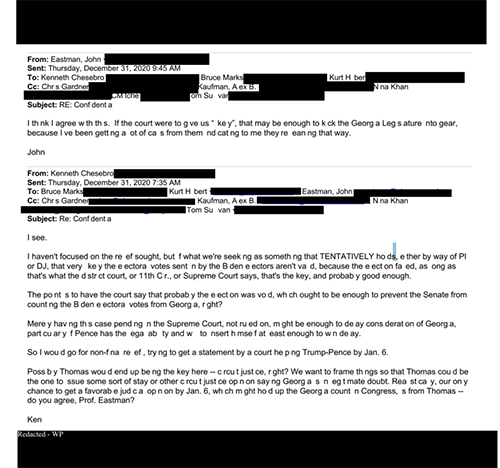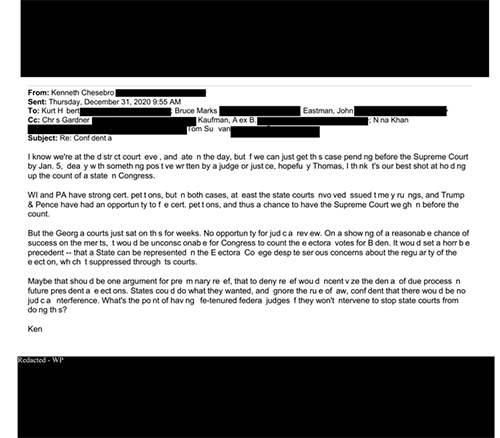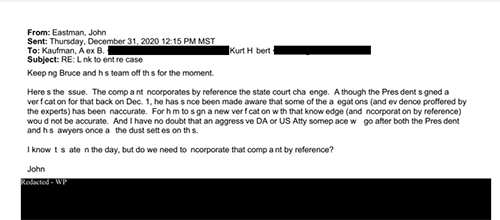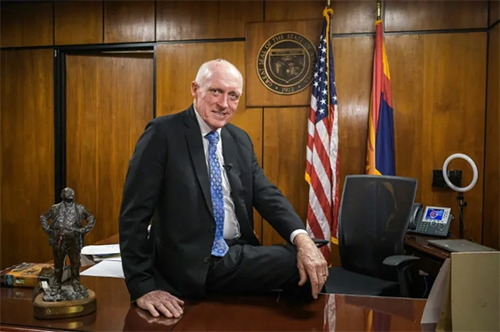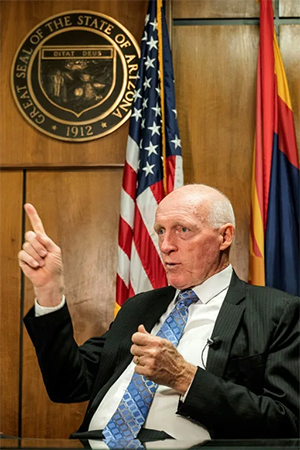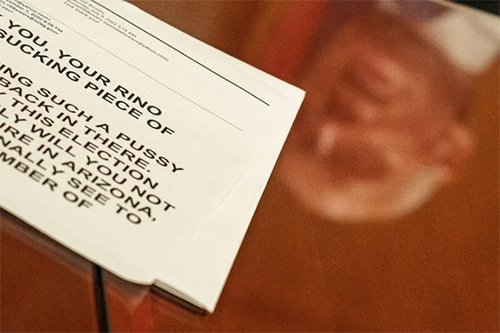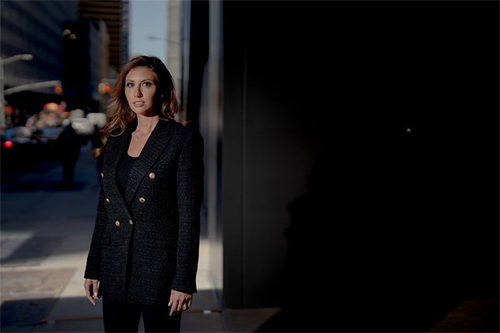by Kyle Cheney, Josh Gerstein and Nicholas Wu
Politico
11/02/2022 10:17 AM EDT
Updated: 11/02/2022 03:09 PM EDT
https://www.politico.com/news/2022/11/0 ... n-00064592
NOTICE: THIS WORK MAY BE PROTECTED BY COPYRIGHT
YOU ARE REQUIRED TO READ THE COPYRIGHT NOTICE AT THIS LINK BEFORE YOU READ THE FOLLOWING WORK, THAT IS AVAILABLE SOLELY FOR PRIVATE STUDY, SCHOLARSHIP OR RESEARCH PURSUANT TO 17 U.S.C. SECTION 107 AND 108. IN THE EVENT THAT THE LIBRARY DETERMINES THAT UNLAWFUL COPYING OF THIS WORK HAS OCCURRED, THE LIBRARY HAS THE RIGHT TO BLOCK THE I.P. ADDRESS AT WHICH THE UNLAWFUL COPYING APPEARED TO HAVE OCCURRED. THANK YOU FOR RESPECTING THE RIGHTS OF COPYRIGHT OWNERS.
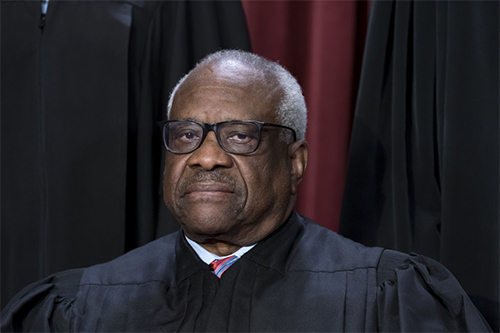
The emails were part of a batch that lawyer John Eastman had sought to withhold from the Jan. 6 select committee but that a judge ordered turned over anyway, describing them as evidence of likely crimes committed by Eastman and Donald Trump. | J. Scott Applewhite/AP Photo
Donald Trump’s attorneys saw a direct appeal to Supreme Court Justice Clarence Thomas as their best hope of derailing Joe Biden’s win in the 2020 presidential election, according to emails newly disclosed to congressional investigators.
“We want to frame things so that Thomas could be the one to issue some sort of stay or other circuit justice opinion saying Georgia is in legitimate doubt,” Trump attorney Kenneth Chesebro wrote in a Dec. 31, 2020, email to Trump’s legal team. Chesebro contended that Thomas would be “our only chance to get a favorable judicial opinion by Jan. 6, which might hold up the Georgia count in Congress.”
“I think I agree with this,” attorney John Eastman replied later that morning, suggesting that a favorable move by Thomas or other justices would “kick the Georgia legislature into gear” to help overturn the election results.
The messages were part of a batch of eight emails — obtained by POLITICO — that Eastman had sought to withhold from the Jan. 6 select committee but that a judge ordered turned over anyway, describing them as evidence of likely crimes committed by Eastman and Trump.
They thought we were so slow, that we were so stupid, that we would elect the lowest caricature of a stereotypical broken black man, as opposed to somebody who is educated, and erudite, and focused.
Y'all aren't ready for me today.
-- Pastor Jamal Bryant DEMOLISHES Herschel Walker. White Evangelicals in Disarray, The Benjamin Dixon Morning Show, Oct 31, 2022
They were transmitted to the select committee by Eastman’s attorneys last week, but remained largely under wraps until early Wednesday morning.
House General Counsel Douglas Letter acknowledged Wednesday afternoon that his office effectively released the messages by including a link to them in copies of messages publicly filed with the 9th Circuit Court of Appeals.
“We were not aware that the links in Dr. Eastman’s email remained active, and had no intention to provide this type of public access to the materials at this stage. Providing public access to this material at this point was purely inadvertent on our part,” Letter told the appeals court in a brief letter. The emails, as produced to the committee, included formatting errors that removed “i”s and “l”s. POLITICO has included the missing letters for clarity.
[DELETE]
From: Eastman, John [DELETE]
Sent: Thursday, December 31, 2020 9:45 AM
To: Kenneth Chesebro [DELETE] Bruce Marks [DELETE] Kurt Hilbert [DELETE]
Cc: Chris Gardner [DELETE] Kaufman, Alex B. [DELETE] Nina Khan [DELETE] CMitchell [DELETE] Tom Sullivan [DELETE]
Subject: Re: Confidential
I think I agree with this. If the court were to give us "likely", that may be enough to kick the Georgia Legislature into gear, because I've been getting a lot of calls from them indicating to me they're leaning that way.
John
_____________________________________________
From: Kenneth Chesebro [DELETE]
Sent: Thursday, December 31, 2020 7:35 AM
To: Bruce Marks [DELETE] Kurt Hilbert [DELETE] Eastman, John [DELETE]
Cc: Chris Gardner [DELETE] Kaufman, Alex B. [DELETE] Nina Khan [DELETE] Tom Sullivan [DELETE]
Subject: Re: Confidential
I see.
I haven't focused on the relief sought, but if what we're seeking as something that TENTATIVELY holds, either by way of PI or DJ, that very likely the electoral votes sent in by the Biden electors aren't valid, because the election failed, as long as that's what the district court, or 11th Cir., or Supreme Court says, that's the key, and probably good enough.
The point is to have the court say that probably the election was void, which ought to be enough to prevent the Senate from counting the Biden electoral votes from Georgia, right?
Merely having this case pending in the Supreme Court, not ruled on, might be enough to delay consideration of Georgia, particularly if Pence has the legal ability and will to insert himself at least enough to win delay.
So I would go for non-final relief, trying to get a statement by a court helping Trump-Pence by Jan. 6.
Possibly Thomas would end up being the key here -- circuit justice, right? We want to frame things so that Thomas could be the one to issue some sort of stay or other circuit justice opinion saying Georgia is in legitimate doubt. Realistically, our only chance to get a favorable judicial opinion by Jan. 6, which might hold up the Georgia count in Congress, is from Thomas -- do you agree, Prof. Eastman?
Ken
[DELETE]
Thomas is the justice assigned to handle emergency matters arising out of Georgia and would have been the one to receive any urgent appeal of Trump’s lawsuit to the Supreme Court — a fact that seemed to be part of the Trump legal team’s calculus.
Rulings from so-called circuit justices are typically stopgap measures aimed at preserving the status quo until the full Supreme Court weighs in, but the Trump lawyers hoped a favorable order from Thomas would embolden state GOP-controlled legislatures, Congress — or then-Vice President Mike Pence — to block final certification of Joe Biden’s victory.
In another Dec. 31 email, Chesebro explicitly laid out this strategy:
"[ I]f we can just get this case pending before the Supreme Court by Jan. 5, ideally with something positive written by a judge or justice, hopefully Thomas, I think it’s our best shot at holding up the count of a state in Congress,” Chesebro said.
[DELETE]
From: Kenneth Chesebro [DELETE]
Sent: Thursday, December 31, 2020 9:55 AM
To: Kurt Hilbert [DELETE] Bruce Marks [DELETE] Eastman, John [DELETE]
Cc: Chris Gardner [DELETE] Kaufman, Alex B. [DELETE] Nina Khan [DELETE] Tom Sullivan [DELETE]
Subject: Re: Confidential
I know we're at the district court level, and late in the day, but if we can just get this case pending before the Supreme Court by Jan. 5, ideally with something positive written by a judge or justice, hopefully Thomas, I think it’s our best shot at holding up the count of a state in Congress.
WI and PA have strong cert. petitions, but in both cases, at least the state courts involved issued timely rulings, and Trump & Pence have had an opportunity to file cert. petitions, and thus a chance to have the Supreme Court weigh in before the count.
But the Georgia courts just sat on this for weeks. No opportunity for judicial review. On a showing of a reasonable chance of success of the merits, it would be unconscionable for Congress to count the electoral votes for Biden. It would set a horrible precedent -- that a State can be represented in the Electoral College despite serious concerns about the regularity of the election, which it suppressed through its courts.
Maybe that should be one argument for preliminary relief, that to deny relief would incentivize the denial of due process in future presidential elections. States could do what they wanted, and ignore the rule of law, confident that there would be no judicial interference. What's the point of having life-tenured federal judges if they won't intervene to stop state courts from doing this?
Ken
[DELETE]
Chesebro’s emails continued to offer detailed strategy proposals about ways to delegitimize Biden’s victory on Jan. 6 and beyond.
In one scenario, Chesebro proposed encouraging Senate Republicans to filibuster long enough to delay the joint session of Congress on Jan. 6, ignoring limitations on the length of debate. He also described how Trump allies could use inaction by the courts to build political pressure against Biden’s inauguration.
“Hard to have enormous optimism about what will happen on Jan. 6, but a lot can happen in the 13 days left until then, and I think having as many states still under review (both judicially and in state legislatures) as possible is ideal,” Chesebro wrote Trump campaign attorney Justin Clark on Dec. 24, 2020. It’s unclear how or whether Clark responded to Chesebro’s message.
The New York-based lawyer has been scrutinized by the Jan. 6 select committee, as well as prosecutors in Fulton County, Ga., who are investigating Trump’s efforts to subvert the election there.
The Trump’s team’s effort found virtually no traction at the high court. The only outward signs of dissension among the justices were mild, like a Dec. 11 order where the court rejected a bid by Texas to challenge the vote counts in four other states. Thomas and Justice Samuel Alito issued a brief statement saying they’d have accepted jurisdiction over the case, but joined the other justices in denying Texas any relief.
Eastman, an architect of Trump’s last-ditch bid to subvert the 2020 election, once clerked for Thomas and had corresponded with his wife, Virginia, in the weeks before Jan. 6.
Eastman played a central role in pressuring Pence to single-handedly subvert the 2020 election when he presided over the Jan. 6 session of Congress — a legally required proceeding to count electoral votes and certify the election results.
In his conversations with Pence’s staff on Jan. 4 and 5, Eastman suggested that he believed Thomas would likely support their efforts. Eastman’s emails, which he has fought to keep from the select committee, have yielded some of the most potent evidence against Trump’s team — including a March 28 ruling from a federal judge declaring it likely that Trump and Eastman had criminally conspired to subvert the election.
Federal prosecutors have also scrutinized Eastman, who pleaded the Fifth in testimony to the Jan. 6 panel. FBI agents seized Eastman’s cell phone in June as part of a wide-ranging investigation related to efforts by Trump allies to undermine the election results.
Ginni Thomas became the focus of congressional investigators after text message emerged showing her urging Trump’s chief of staff, Mark Meadows, to continue efforts to keep Trump in power despite losing the 2020 election. She interviewed with the Jan. 6 panel earlier in the fall.
The emails also shed new light on an effort to get Trump to sign documents connected to a Dec. 31, 2020, federal lawsuit challenging the election results in Georgia, including acute concerns Trump’s lawyers voiced during that chaotic period that Trump might put himself in legal jeopardy if he attested to the voter fraud data contained in it.
From: Eastman, John [DELETE]
Sent: Thursday, December 31, 2020 12:15 PM MST
To: Kaufman, Alex B. [DELETE] Kurt Hilbert [DELETE]
Subject: RE: Link to entire case
Keeping Bruce and his team off this for the moment.
Here's the issue. The complaint incorporates by reference the state court challenge. Although the President signed a verification for that back on Dec. 1, he has since been made aware that some of the allegations (and evidence proffered by the experts) has been inaccurate. For him to sign a new verification with that knowledge (and incorporation by reference) would not be accurate. And I have no doubt that an aggressive DA or US Atty someplace will go after both the President and his lawyers once all the dust settles on this.
I know it is late in the day, but do we need to incorporate that complaint by reference?
John
[DELETE]
“I have no doubt that an aggressive DA or US Atty someplace will go after both the President and his lawyers once all the dust settles on this,” Eastman wrote in an email to two other private attorneys working on Trump election challenges, Alex Kaufman and Kurt Hilbert.
After some exchanges, including with Trump White House lawyer Eric Herschmann, the lawyers agreed they would remove some of the specific figures before Trump swore to the accuracy of the lawsuit.
But they also debated whether the federal complaint should “incorporate by reference” the voter fraud data included in an earlier state-level lawsuit. Eastman warned that since the state lawsuit was filed, evidence had disproved some of the voter fraud data contained in it — and having Trump point to the earlier data would be erroneous.
“I know it is late in the day, but do we need to incorporate that complaint by reference?” Eastman wondered.
It’s unclear how the other attorney responded to Eastman. But in a separate email chain with additional lawyers, an intensive effort was underway to get the court filings in front of Trump so they could be signed and notarized in time to file the lawsuit that evening.
Trump, they were informed, was on a plane back to D.C. and they needed him to sign and notarize the document. Trump attorney Cleta Mitchell said Trump’s personal assistant had informed her they had no access to a notary until Monday.
“So, now what?” she wondered. “Can we figure out a way to file this without a verification?
“There’s no one they can call to come to the White House that’s a notary?” Chris Gardner, a Virginia attorney and former GOP House aide assisting the president’s legal team, asked in an email sent just before 4 P.M. on New Year’s Eve. “I don’t know how we file without it. Presidential trip to a UPS store?”
Mitchell later said she was exploring the possibility of getting a notary to certify Trump’s signature via a Zoom call.
Court records show Trump’s signature was ultimately attested to by William McCathran, an assistant executive clerk working for the White House.
Trump’s signature was key to U.S. District Court Judge David Carter’s Oct. 19 ruling that the emails must be disclosed to the House Jan. 6 committee. Carter said Trump signed the verification to a federal court complaint under penalty of perjury despite evidence that he’d been told many of the fraud claims in the lawsuit were inaccurate.
The messages “show that President Trump knew that the specific numbers of voter fraud were wrong but continued to tout those numbers, both in court and to the public,” wrote Carter, an appointee of President Bill Clinton.

